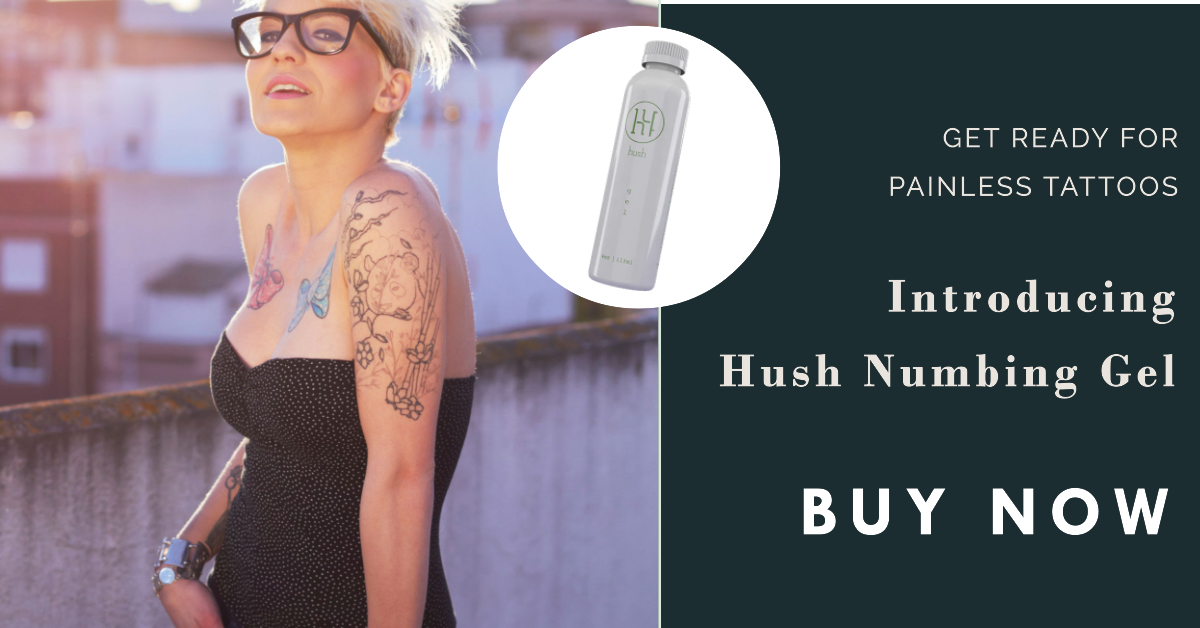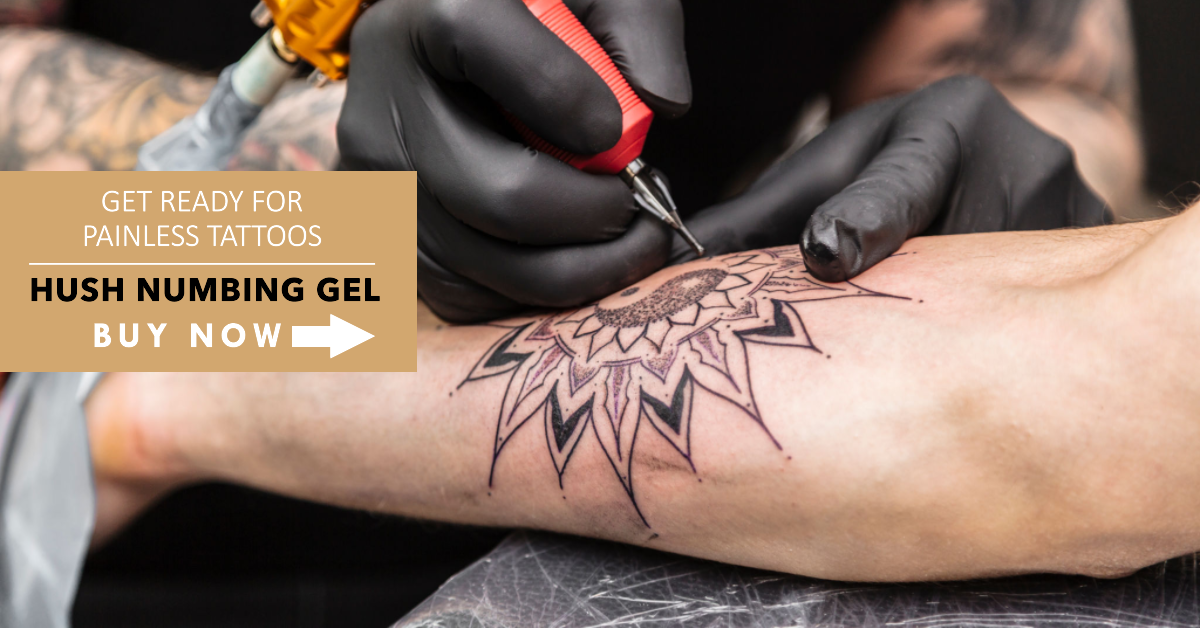Tattoos in the Workplace- Do High Paying Jobs Allow Tattoos?
/Especially in recent years, tattoos have become commonplace for many as a form of self-expression. However, self-expression is not always a priority in the workplace. Though many companies and corporations have begun to adopt looser policies as far as employees’ appearances go, some have not. If you have or want to get tattoos, you will want to make sure that your profession allows for them.
There are plenty of high paying jobs in industries that allow tattoos, such as:
Beauty and fitness
Entertainment
Medicine
Social media and marketing
Technology and Computer Science
Visual Development and design
However, there may be other factors to consider before getting tattoos for certain career fields.
This article will guide you through jobs that typically allow tattoos, jobs that may not, and what to consider before getting a tattoo while working a high-paying job. As you keep reading, you’ll also learn about why tattoos have become more acceptable in the workplace and whether or not your employer is allowed to force you to cover up your tattoos.
Worried about the pain of getting tattooed? Shop our numbing products!
Are Tattoos Considered Unprofessional?
Tattoos are a tough line to walk when it comes to professionalism because there are several factors that go into the conversation. The answer in some cases is yes, tattoos are considered to be unprofessional, but it varies a great deal.
The truth is that tattoos are becoming more and more widely accepted in the workplace; even in many professions where tattoos were once considered taboo.
Regardless of whether or not any given workplace allows them, one thing that is very important is what your tattoos depict.
There are certain things that are almost a guaranteed workplace no-no, including:
Gang symbols
Hate symbols
Sexual or violent drawings or words
Swear words/slurs
By making wise choices about your tattoos, you have a better chance of being able to show them with pride while you’re at work.
Are Tattoos Becoming More Acceptable in the Workplace?
As a whole, yes, tattoos are becoming more accepted by more and more workplaces. In the 2000s especially, there has been a considerable push to end discrimination in the workplace. Tattooed workers are a large part of this movement. They believe that they should be able to express themselves through art, even if it means they don’t look exactly how everybody else does.
Tattoos are something that some professions seem to almost celebrate. They are literally a part of you; they help to make you who you are. If you’re an actor, singer, or social media influencer, your tattoos can be a relatively large part of your legacy and the things you’re known for. Of course, actors often need to at least cover them for certain roles, but they are still allowed. Some well-known, obviously highly paid people who have tattoos are:
Adam Levine
Harry Styles
Jennifer Aniston
Johnny Depp
Miley Cyrus
Even if you aren’t working in the entertainment industry, there are plenty of other, more “typical” occupations that allow tattoos. Some of these include chefs, teachers, nurses, and even doctors.
Do Tattoos Ruin Job Opportunities?
As stated earlier in the article, yes, tattoos may impact certain job opportunities. There will always be at least someone willing to deny you a job over your tattoos, regardless of how normal they become in society as a whole.
Tattoos can ruin your chance for a job but they are becoming more widespread and more acceptable. Everything and anything about your appearance could ruin or make the opportunity for you, and tattoos could be one of those factors.
But everything depends on what job you are applying to and how the company views its code of conduct. Often, what really matters is the placement and subject matter of the tattoo.
If your tattoo means something dirty or hateful, you may have a hard time getting hired for higher-paying jobs, especially because they are considered unprofessional, potentially a source of offense – even harassment, and often immature, as well. Always keep in mind that with tattoos, all that your potential employer sees is the picture, not the story. They don’t care about the context of the tattoo because they know that the customer/clients won’t, either.
Your tattoos are an easy way for your potential employer to gauge your personality. If you have strange tattoos of uncomfortable topics like sex or violence, then your employer might decide you aren’t particularly “workplace friendly.” However, if you have a beautiful and decorative image that is socially acceptable, it could be a conversation starter that could lead to a closed deal.
Can Neck and Hand Tattoos Ruin Job Opportunities?
One of the reasons that tattoos are more acceptable in the workplace now is because, a lot of times, they can be covered up relatively easily. However, with something like a neck or a hand tattoo, that gets a little trickier. An employer for any job, high paying or not, might consider neck and hand tattoos to be a little too visible and decide not to hire you.
Tattoos also come with a lot of preconceived notions in general, but these stereotypes are especially strong with neck, hand, and even face tattoos. They’re often associated with:
Convicts
Gang members
Individuals that lack maturity
Going into a job interview with tattoos on your hands or neck could be a deciding factor that could either make or break your job opportunity but they are not a certain disqualification.
How to Help Your Chances
There are some relatively easy things a tattooed individual can do to increase their odds of landing a high-paying position. These things can include:
Being honest. Immediately let your potential employer know that you have visible tattoos, where they are, and what they depict. Not only will this make it easy for you to know where you stand with that company, but it also shows that you’re willing to take the initiative and be honest.
Being mindful. If you haven’t yet gotten a tattoo, but you know you want to, consider what you might want to get. Ask yourself and even others if the potential design would be a good thing to display at work.
Being open-minded. Have a conversation with your potential employer. If they say no tattoos are allowed, be respectful and let them explain their reasoning. People fear what they don’t understand.
Being firm. Let your employer know that you believe your tattoos won’t impact your ability to work or other people’s ability to work with you. Let them know why you want the job and why they won’t find a better person for it, tattooed or not—advocate for yourself.
Can Your Employer Force You To Cover Tattoos?
Your employer can absolutely tell you that you need to cover up your tattoos, no matter what they depict. Though it may feel morally wrong, your employer is well within their legal rights to ask you to cover up your tattoos. If told to do so, there is virtually nothing you can do; either cover up or find a new place of work.
The only instance where you would be able to argue your right to show your tattoos in the workplace if told to cover up would be if your employer was blatantly violating a law that prohibits workplace discrimination, like the Civil Rights Act of 1964. For example, if you’re a POC and being asked to cover your tattoos but your non-POC colleagues are allowed to have theirs exposed, you would be able to file a claim that your employer is behaving in a discriminatory manner.
Best Jobs That Allow Tattoos
There are a lot of jobs these days that allow visible tattoos. A good rule of thumb is that if there isn’t a uniform or a specific way employees have to look, they may also be tattoo-friendly.
However, as always, be sure to check with the specific location and employer you want to work for since it is often left up to the employer’s discretion. Let’s discuss some specific jobs that may pay really well and are likely to allow tattoos.
Medical Jobs
As strange as it may seem, a lot of medical professions do actually allow visible tattoos. In this situation, “medical jobs” refers to:
Doctors
Nurses
Surgeons
Anesthesiologists
Therapists
Veterinarians
Dentists
In the medical field, you’re dealing with a lot of patients, and there are a lot of chances for those people to notice any visible tattoos you may have. However, at the end of the day, you are a medical professional, and more and more institutions realize that tattoos mean very little. A medical professional of any kind is obviously well educated, and a little ink can’t undo four-plus years of training.
However, the nature of your tattoos is especially important in these fields. Patients have to feel like they can trust you, and if you have something offensive drawn on your body, that trust becomes difficult. Thankfully, several medical professions require coats, so you’ll be able to have a little coverage.
Salary: $80k to $900k per year, depending on your specialty, experience, and education.
Tattooing and Cosmetic Jobs
As a tattoo artist, of course, you’re welcome to have tattoos. In fact, in many cases, having lots of visible tattoos as a tattoo artist is preferred. It shows your clients and your potential employer that you’re passionate about the industry. A potential client and employer alike might be wary of a tattoo artist that doesn’t actually have any visible tattoos. All forms of tattoos are acceptable in a tattoo artist position: neck, face, hands, all of them.
Salary: anywhere from $20k to $200k, depending on location, popularity, and experience.
Cosmetic jobs are much the same as tattoo artist jobs in this regard. Both favor creative expression, and having unique tattoos could really set you apart from any competition. Though tattoos aren’t quite as vital to your reputation as an artist, they still tell people a fair amount about the art you like to create and what they can expect from you.
Salary: anywhere from $18k to $100k per year.
Acting and Entertainment Jobs
Acting and other entertainment jobs typically do not care much about whether or not you have visible tattoos. Most productions have makeup artists on set. If you can’t have visible tattoos for a certain role, they can cover them up while filming.
That’s the case with historical movies or any other movie that is based on real people. However, in many shows and movies, actors and actresses are allowed to keep their tattoos uncovered since it doesn’t always impact the character they’re playing. Some productions will even add “tattoos” to an actor through makeup in order to portray a character in a certain way.
Singers and voice actors are all also allowed to have tattoos, and since they don’t do as much on-screen work, they don’t have to cover up often, if at all. In entertainment, your tattoos are a defining feature about you. A good example of this is someone like Post Malone; he has tons of visible face and neck tattoos that are never covered. Because those tattoos quickly became part of his “brand,” and it would probably feel stranger for him to be without them.
Other celebrities that have tattoos include:
Angelina Jolie
Ben Affleck
Lady Gaga
Rihanna
Actors and entertainers can net a pretty impressive salary, ranging anywhere from $20k to many millions of dollars per year.
Law Enforcement, Bodyguards and Security
These types of jobs also allow for visible tattoos most of the time. Bodyguards and other security workers are supposed to look “tough,” and one of the best ways to look this way is to have lots of tattoos that people can see. Even if they can’t necessarily see what they are, it lets them know that you fit a certain stereotype and should not be messed with.
There are some exceptions to this rule. Some celebrities hire private bodyguards. If a tatted-up bodyguard doesn’t fit their aesthetic the way they’d like, they may ask you to cover up. The same goes for places like clubs and bars. However, if you’re hired out from a larger company, always check the policy to see if a third-party employer can actually ask you to cover up.
Salary: $50k to $100k per year.
Can Police Have Tattoos?
Police work still has a way to go in terms of a progressive tattoo policy, but this may be for a good reason. As a general rule, face, neck, and hand tattoos are typically prohibited for police officers. People working in law enforcement are usually allowed to have tattoos on their arms since they are “less visible” than something like a face or a neck tattoo.
As a police officer, you never know who you’re dealing with or how dangerous they may be. If you have something like a face or neck tattoo, that could make you memorable and, more importantly, easily identifiable to potential danger. By not having identifiable markings like tattoos, you reduce the risk of a resentful deviant seeing you when you’re vulnerable, identifying you, and causing you harm.
The nature of your tattoos matters a lot in the police force. If you have gang-affiliated tattoos, tattoos that are hateful or violent, or tattoos that encourage deviancy at all, a recruiter will probably see you as too great of a risk and pass over you. Any visible tattoos that a police officer has—regardless of where they are—are usually subject to the police chief’s approval.
Salary: $30k to $100k per year, usually dependent on rank and experience.
Jobs That Don’t Allow Tattoos
Despite society’s progression toward a more self-expressive future, there are still a lot of jobs that don’t allow tattoos, regardless of their location and whether they’re appropriate or not. Some of these jobs can include:
Lawyers
Receptionists
Some grocery store workers
Teachers
PLEASE NOTE: There are often exceptions to all these examples. I personally have tattooed many people in each of these professions. everything depends on the specific company or location.
Some establishments in these professions allow tattoos, like teachers especially. Every school is different. If the school you want to work at does not allow visible tattoos for students (depending on age and grade level), that won’t bode well for your own tattoos. Just be sure to check in with your employer and get a clear picture of their stance on tattoos.
Can You Get a Government Job with Tattoos?
“Government jobs” is an incredibly broad term since there are so many different positions and depending on what country you live in this answer will vary.
Intelligence agencies generally prohibit tattoos while institutions like the IRS, and military have very strict guidelines on tattoos. Tattoos deemed violent or sexual are prohibited for anyone working in any government positions, regardless of placement.
However, most other government jobs, including clerkships and even the presidency, allow tattoos. In fact, several presidents are rumored or confirmed to have had tattoos, including:
Andrew Jackson
Both Roosevelts
Dwight Eisenhower
James Polk
Final Thoughts
Tattoos do not have the kind of impact that they used to on a person’s job opportunities. Today, your tattoos are more likely to become a conversation starter than they are to end your chances of getting hired. If you have tattoos and are looking for a high-paying job, you can easily find your niche.
What will have a substantial impact on your chances is the type of tattoo you have. If you’re concerned about the nature of the job you’re after vs. the nature of your tattoo, be upfront with your potential employer. Let them know how you’re feeling and try to work together to either come to a solution or figure out a plan to get there.
































